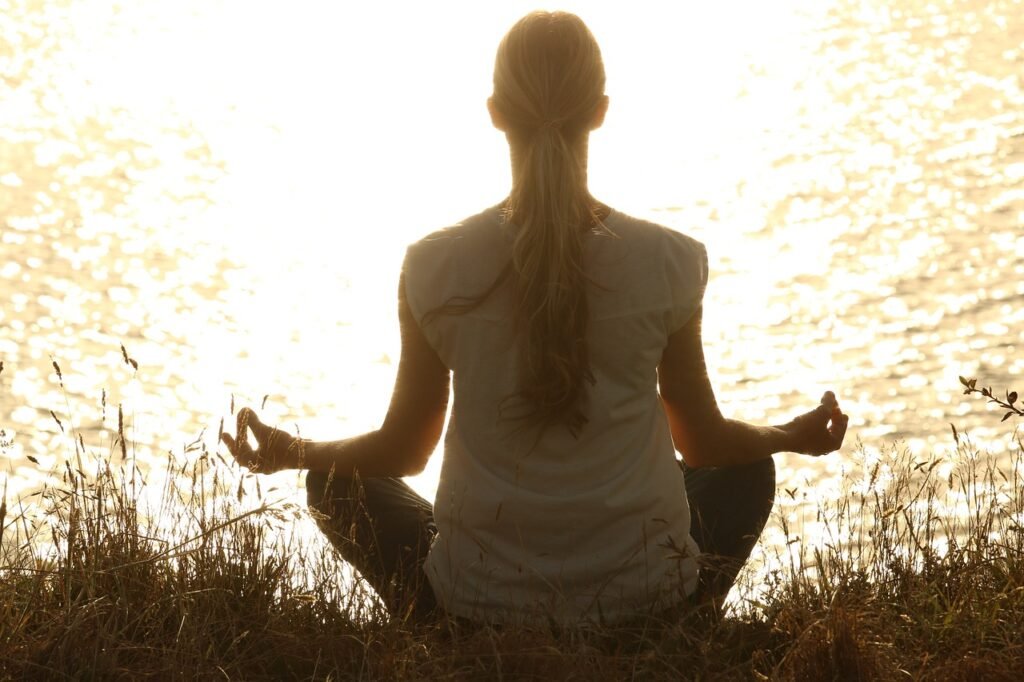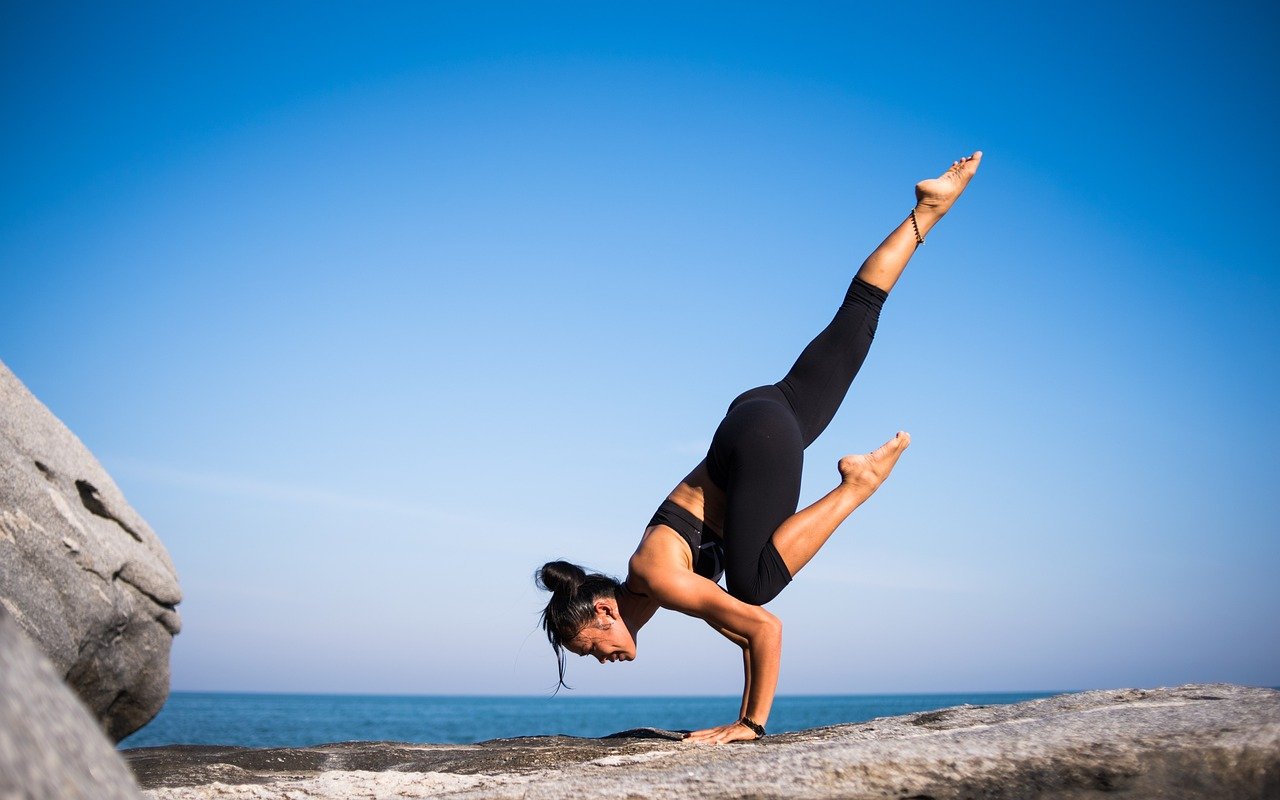Take a moment to pause, close your eyes, and let your thoughts settle as we explore the world of meditation and reflection. In this article, we will delve into the transformative power of these practices and how they can help bring clarity, peace, and a sense of self-awareness to your daily life. Whether you are a beginner or an experienced practitioner, join us as we embark on a journey of self-discovery and find solace in the present moment.

The Benefits of Meditation
Reducing Stress and Anxiety
Meditation is a powerful tool that can help you reduce stress and anxiety in your daily life. When you take the time to sit in silence and focus inward, you allow your mind to quiet down and your body to relax. Through the practice of meditation, you can learn how to let go of stressors and anxieties, and instead cultivate a sense of calm and peace within yourself. By regularly engaging in meditation, you can train your mind to become less reactive to stressful situations and build resilience to handle challenges with ease.
Improving Emotional Well-being
In addition to reducing stress and anxiety, meditation can also greatly improve your emotional well-being. Through the practice of mindfulness, you can become more aware of your thoughts, emotions, and the underlying patterns that influence your mood. This awareness allows you to develop a deeper understanding of yourself and your emotional landscape. By acknowledging and accepting your emotions without judgment during meditation, you can learn to respond to them in a more constructive and compassionate way. Over time, this can lead to greater emotional balance, increased happiness, and improved overall well-being.
Increasing Self-Awareness
One of the key benefits of meditation is the development of self-awareness. By regularly taking the time to sit in stillness and observe your thoughts and feelings, you can gain valuable insights into your own mind and behaviors. Through the practice of mindfulness, you can cultivate the ability to notice when you are getting caught up in unhelpful thought patterns or reacting unconsciously to triggers. This increased self-awareness allows you to make more intentional choices and take responsibility for your actions. By understanding yourself better, you can make positive changes, break negative patterns, and create a life that aligns with your values and goals.
Enhancing Concentration and Focus
In a world full of distractions, meditation can be a valuable tool to enhance your concentration and focus. By training your mind to stay present and focused on the present moment, you can strengthen your ability to concentrate on tasks at hand. Through the practice of mindfulness meditation, you can learn to let go of the constant stream of thoughts and worries that often pull your attention away from what you are doing. Regular meditation practice can sharpen your focus, improve your productivity, and help you stay fully engaged in the present moment.
Promoting Better Sleep
If you struggle with getting a good night’s sleep, meditation can be a beneficial practice to incorporate into your bedtime routine. By quieting your mind and relaxing your body through meditation, you can create the conditions for a more restful sleep. The practice of mindfulness can help you let go of racing thoughts and worries that often keep you awake at night. By cultivating a sense of relaxation and calmness, meditation can promote a deeper and more rejuvenating sleep. Regular meditation practice before bedtime can contribute to better sleep quality, allowing you to wake up feeling refreshed and energized.
Different Types of Meditation
Mindfulness Meditation
Mindfulness meditation is the most commonly practiced form of meditation and involves bringing your attention to the present moment without judgment. It involves focusing on your breath, bodily sensations, thoughts, or external stimuli, and gently returning your attention back when your mind wanders. Mindfulness meditation can be practiced in various ways, such as sitting in silence, walking, or engaging in daily activities with full awareness.
Transcendental Meditation
Transcendental meditation is a technique that involves the use of a mantra or repetitive sound to facilitate deep relaxation and transcendence. It typically involves sitting comfortably with your eyes closed and silently repeating a mantra, allowing your mind to settle into a state of deep rest while remaining alert. Transcendental meditation is known for its simplicity and accessibility, making it a popular choice for many individuals.
Loving-Kindness Meditation
Loving-kindness meditation, also known as metta meditation, involves cultivating feelings of love, kindness, and compassion towards oneself and others. It typically begins by focusing on generating feelings of love and kindness towards oneself, then gradually extending these feelings to loved ones, acquaintances, strangers, and eventually to all beings. Loving-kindness meditation helps foster a sense of connection, empathy, and well-being.
Guided Visualization
Guided visualization is a meditation technique that involves using your imagination to create a mental image or scenario in which you fully immerse yourself. It often involves following the guidance of a recorded or live instructor who leads you through specific visualizations, such as imagining yourself in a peaceful natural setting or achieving your goals. Guided visualization can be a powerful tool for relaxation, focus, and manifesting positive changes in your life.
Mantra Meditation
Mantra meditation involves the repetition of a word, phrase, or sound to focus and calm the mind. The chosen mantra can be a sacred word, a positive affirmation, or a sound that resonates with you. By repeating the mantra during meditation, you can create a sense of mental clarity, inner peace, and connection to a higher state of consciousness.
The Process of Meditation
Finding a Peaceful Environment
When practicing meditation, it is important to find a peaceful environment where you can minimize distractions and interruptions. Choose a quiet space in your home or find a serene natural setting that allows you to connect with your inner self. Creating a dedicated space for meditation can enhance the sense of tranquility and help establish a consistent practice.
Assuming a Comfortable Posture
To practice meditation effectively, it is important to assume a comfortable posture that allows you to sit with ease and maintain alertness. You can sit on a cushion or a chair with a straight back, or even lie down if that is more comfortable for you. The key is to find a posture that supports both relaxation and attentiveness.
Focusing on the Breath
Once you are settled in your posture, bring your attention to your breath. Pay attention to the sensations of the breath as it enters and leaves your body. Notice the rise and fall of your abdomen or the feeling of air passing through your nostrils. Whenever your mind starts to wander, gently redirect your focus back to your breath. The breath serves as an anchor that helps keep you centered in the present moment.
Observing Thoughts and Letting Go
During meditation, thoughts will inevitably arise. Rather than getting caught up in these thoughts, simply observe them without judgment and let them go. Imagine your thoughts as passing clouds in the sky, allowing them to drift away as you return your attention to your breath or chosen point of focus. By cultivating a non-reactive and non-attached attitude towards your thoughts, you can develop a greater sense of inner calm and clarity.
Ending the Meditation Session
When you feel ready to end your meditation session, do so gradually. Take a few moments to bring your awareness back to your body, gently move your limbs, and open your eyes if they were closed. Allow yourself a few moments of stillness before resuming your daily activities. Reflect on the benefits of the practice and carry the sense of peace and mindfulness into your day.
Tips for Beginners
Start with Short Sessions
If you are new to meditation, it is advisable to start with short meditation sessions and gradually increase the duration as you become more comfortable. Begin with just a few minutes of daily practice and gradually work your way up to longer sessions. Consistency is more important than duration, so it is better to practice regularly for a shorter time than sporadically for a longer time.
Choose a Meditation Technique
Experiment with different meditation techniques to find the one that resonates with you the most. Try out mindfulness meditation, loving-kindness meditation, or guided visualization to see which one feels most comfortable and beneficial for you. There is no one-size-fits-all approach to meditation, so explore different techniques until you find the one that suits your needs and preferences.
Create a Routine
Establishing a regular meditation routine can greatly support your practice. Set aside a specific time each day that is dedicated solely to meditation. This can be in the morning, during a break in the afternoon, or before bedtime. Consistency is key to reaping the full benefits of meditation, so make it a priority in your daily schedule.
Find Guidance or Support
If you feel uncertain or overwhelmed about starting a meditation practice, seek guidance or support from experienced meditators or meditation teachers. Consider attending meditation classes, workshops, or retreats where you can learn from qualified instructors and connect with a community of like-minded individuals. Alternatively, there are numerous meditation apps and online resources that offer guided meditations and valuable insights.
Be Patient and Persistent
Meditation is a skill that takes time and practice to develop. Be patient with yourself and recognize that progress may be gradual. Some days, your mind may feel busy and restless, while other days, you may experience moments of deep calm and clarity. Embrace the journey of meditation with an attitude of curiosity and openness, and trust that with consistent effort, you will experience the transformative benefits it has to offer.

Using Meditation as a Reflection Tool
Bringing Mindfulness to Everyday Life
Meditation can serve as a powerful tool for bringing mindfulness to your everyday life. It helps cultivate a habit of being fully present in each moment, even outside of formal meditation practice. By incorporating mindfulness into daily activities such as eating, walking, or conversing, you can deepen your connection to the present moment and develop a greater appreciation for the simple joys of life.
Reflecting on Thoughts and Emotions
Through the practice of meditation, you can develop the ability to reflect on your thoughts and emotions with a sense of curiosity and non-judgment. By observing your mental and emotional landscape, you can gain insight into the underlying patterns and triggers that influence your thoughts, feelings, and behaviors. This self-reflection allows you to make conscious choices and respond to situations in a more intentional and constructive manner.
Identifying Patterns and Triggers
Regular meditation practice can help you become more aware of recurring patterns and triggers in your life. By observing your thoughts and emotions without attachment or aversion, you can recognize patterns of behavior that may be holding you back or causing unnecessary suffering. This awareness empowers you to make conscious changes and break free from unhealthy habits or limiting beliefs.
Fostering Self-Compassion
Meditation offers an opportunity to cultivate self-compassion and kindness towards yourself. Through the practice of loving-kindness meditation, you can nurture feelings of love, acceptance, and compassion towards yourself, just as you would towards a dear friend. By practicing self-compassion in meditation, you can develop a more nurturing relationship with yourself and cultivate a sense of inner warmth and acceptance.
Gaining Clarity and Insight
Meditation provides a space for quiet contemplation and inner reflection. By allowing your mind to settle and your thoughts to quiet down, you create the conditions for clarity and insight to arise. As you observe your thoughts and emotions from a place of stillness and non-judgment, you can gain a fresh perspective on your life, relationships, and challenges. This clarity and insight can guide you towards making wiser choices and living a more authentic and fulfilling life.
Incorporating Reflection into Meditation Practice
Setting an Intention
Before each meditation session, take a moment to set an intention for your practice. This intention can be a simple affirmation, a guiding principle, or a specific area of focus that you want to explore. By setting an intention, you create a sense of purpose and direction for your meditation, and it can serve as a guiding compass for your reflections during and after the session.
Reviewing Daily Experiences
Incorporate reflection into your meditation practice by reviewing your daily experiences with a sense of mindfulness. After your meditation session, take a few moments to reflect on the events of the day, the interactions you had, and the emotions you experienced. Observe these experiences with a sense of curiosity and non-judgment, allowing insights to arise naturally.
Exploring Inner Values and Beliefs
Use meditation as a tool for exploring your inner values and beliefs. By cultivating a calm and still mind, you can tap into your intuition and deeply examine what truly matters to you. Reflect on your core values, beliefs, and aspirations, and consider how they align with your actions and choices. This self-reflection can help you live a more authentic and purposeful life.
Acknowledging Gratitude
Gratitude is a powerful transformative practice that can be incorporated into meditation. Take a moment to reflect on the things and people you are grateful for in your life. Cultivate a sense of appreciation for the simple blessings and everyday miracles that often go unnoticed. By regularly acknowledging gratitude, you can shift your perspective towards positivity and abundance.
Planning for Personal Growth
Utilize meditation as a platform for planning and envisioning your personal growth. As you reflect on your thoughts, emotions, and experiences, identify areas for personal development and growth. Set goals and intentions for positive changes you want to make in your life, and visualize yourself taking the necessary steps towards achieving them. By integrating reflection and goal-setting into your meditation practice, you can actively shape your personal growth journey.

The Benefits of Reflection
Promoting Personal Growth
Reflection plays a crucial role in personal growth and self-improvement. By regularly taking the time to reflect on your thoughts, emotions, and experiences, you can gain valuable insights and learn from your successes and challenges. This self-reflection allows you to identify areas for improvement, set goals, and take deliberate actions to foster personal growth and development.
Improving Decision-Making
Reflection helps enhance your decision-making skills by providing the opportunity to evaluate past choices and their outcomes. By reflecting on the factors that influenced your decisions and the consequences that followed, you can gain clarity and perspective. This self-reflection enables you to make more informed and thoughtful decisions in the future, leading to greater success and satisfaction.
Enhancing Problem-Solving Skills
Reflection can greatly enhance your problem-solving skills by helping you identify underlying patterns and solutions. By reflecting on past problems or challenges, you can identify recurring themes, strategies that have worked, and areas that need improvement. This self-reflection enables you to approach future problems with a greater sense of clarity, creativity, and resilience.
Strengthening Emotional Intelligence
Reflection promotes the development of emotional intelligence by fostering self-awareness and empathy. By reflecting on your emotions and the impact they have on yourself and others, you can deepen your understanding of yourself and enhance your ability to relate to others with compassion and empathy. This self-reflection enables you to navigate relationships and emotions with greater understanding and skill.
Increasing Self-Awareness
Self-awareness is a key component of personal growth and well-being. Reflection allows you to explore your thoughts, emotions, values, and beliefs with a critical eye. This self-inquiry helps you develop a clear understanding of who you are, what you stand for, and what drives you. By increasing self-awareness through reflection, you can make conscious choices and create a life that aligns with your authentic self.
Combining Meditation and Reflection
Creating a Synergistic Practice
When combined, meditation and reflection can create a synergistic practice that amplifies their individual benefits. Meditation cultivates the stillness and mindfulness necessary for reflection, while reflection deepens the insights gained through meditation. By incorporating both practices into your daily life, you can harness their complementary effects to foster personal growth, self-awareness, and inner peace.
Deepening Self-Understanding
The combination of meditation and reflection deepens your understanding of yourself and your experiences. Meditation provides a space for observation and stillness, allowing insights to arise naturally. Reflection then amplifies these insights by providing a framework for examining and making sense of them. By integrating meditation and reflection, you can uncover layers of self-understanding and gain valuable wisdom.
Cultivating Inner Peace and Clarity
Meditation and reflection work hand in hand to cultivate inner peace and clarity. Through meditation, you can quiet the mind, release stress, and experience a sense of calm. Reflection then allows you to gain clarity and insights by examining your thoughts and experiences with a focused awareness. This combination supports the development of a peaceful and clear mind, enhancing overall well-being.
Embracing Growth and Self-Development
The synergy of meditation and reflection promotes growth and self-development. By regularly engaging in both practices, you create a space for self-exploration and self-inquiry. Meditation provides the foundation of presence and stillness, while reflection allows you to evaluate your experiences and make conscious choices for growth. Together, they empower you to embrace personal development and build a life of purpose and fulfillment.
Achieving Balance and Well-being
The combination of meditation and reflection contributes to achieving balance and well-being in all areas of your life. Meditation helps you cultivate inner calm and resilience, while reflection guides you in making more intentional choices and aligning your actions with your values. By incorporating both practices, you can achieve a sense of balance, harmony, and well-being in your mind, body, and spirit.
Common Challenges and Solutions
Restlessness and Distraction
Restlessness and distraction are common challenges during meditation and reflection. The mind often becomes unsettled and wanders off, making it difficult to stay focused. To overcome this challenge, gently bring your attention back to your breath or chosen point of focus whenever you notice your mind drifting. Practice patience and perseverance, knowing that with consistent effort, you can cultivate a more focused and settled mind.
Frustration with the Process
Feeling frustrated with the meditation or reflection process can hinder your progress. It is important to approach these practices with a sense of curiosity, openness, and self-compassion. Be patient with yourself and recognize that challenges and setbacks are part of the journey. Embrace the learning process and celebrate small victories along the way.
Dealing with Resistance
Resistance is a common obstacle that arises when starting or maintaining a meditation and reflection practice. You may encounter resistance from your own mind, external distractions, or the demands of daily life. To overcome resistance, remind yourself of the benefits and purpose of these practices. Lean into the discomfort and resistance with compassion and commitment, knowing that long-term growth and well-being outweigh momentary discomfort.
Time Management
Finding time for meditation and reflection can be a challenge, especially in our fast-paced world. Prioritize these practices by setting aside dedicated time each day, even if it is just a few minutes. Create a supportive routine by incorporating meditation and reflection into your existing schedule, whether it is in the morning, during a break, or before bedtime. Remember that consistency is more important than duration, so every moment counts.
Maintaining Consistency
Consistency is key to reaping the full benefits of meditation and reflection. It can be challenging to maintain a consistent practice amidst the demands and distractions of daily life. To establish consistency, make a commitment to yourself and treat these practices as an essential part of your self-care routine. Set realistic goals and start with small achievable steps. Celebrate each practice session and build upon your progress over time.
Conclusion
Meditation and reflection are powerful practices that offer a wide range of benefits for your mind, body, and spirit. By incorporating meditation into your daily life, you can reduce stress, improve emotional well-being, increase self-awareness, enhance concentration, and promote better sleep. Reflection, on the other hand, deepens self-understanding, promotes personal growth, enhances decision-making, strengthens emotional intelligence, and increases self-awareness.
By combining meditation and reflection, you can create a synergistic practice that amplifies their individual benefits. This integration supports the cultivation of inner peace, clarity, personal growth, and balance. Despite the common challenges that may arise, such as restlessness, frustration, resistance, time management, and maintaining consistency, these practices can be overcome with patience, perseverance, and self-compassion.
Embrace meditation and reflection as lifelong practices, allowing them to unleash your full potential and support ongoing personal growth and well-being. With commitment and dedication, these practices can become integral tools for nurturing your mind, nourishing your spirit, and living a more balanced and fulfilling life.

